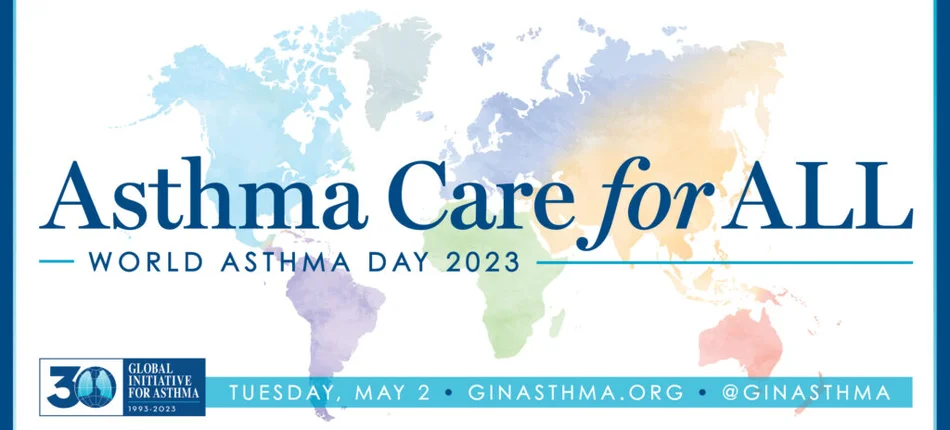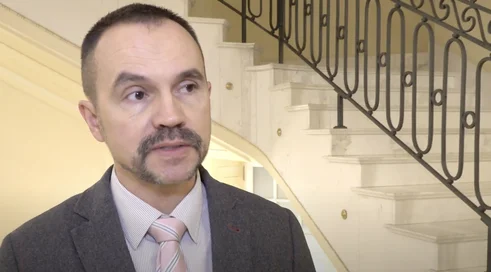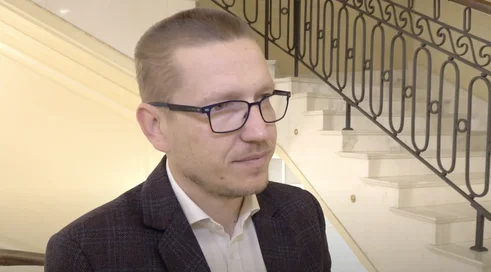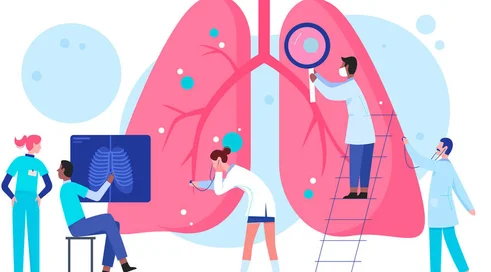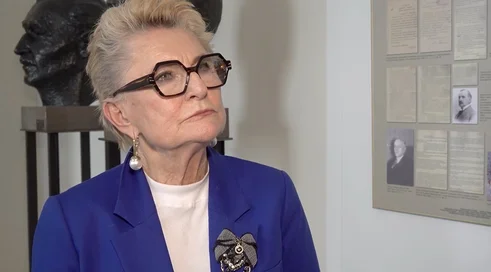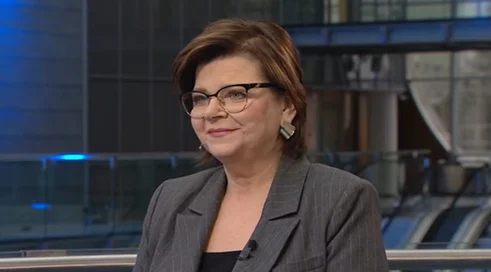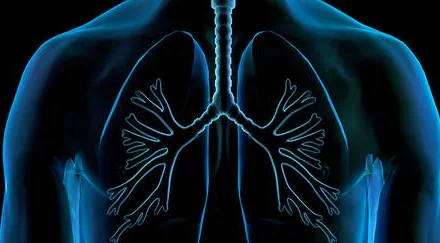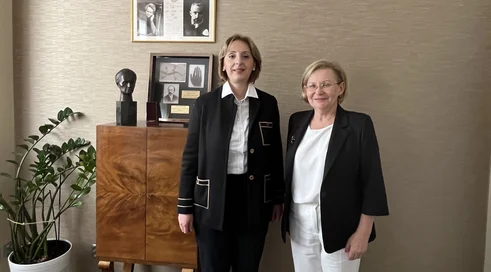Fear, shame, exclusion are among the many emotions and experiences faced by people living with one of the most common chronic respiratory diseases - asthma. In Poland, sufferers number approx. 4 million, with just over half (2.2 million) aware and actively treated. On the occasion of World Asthma Day, which this year is celebrated under the slogan Asthma care for all, it is worth learning about the daily challenges that patients face.Asthma is one of the most common chronic respiratory diseases. Some say it has many faces, and it's hard to disagree. Looking at at least the classifications in clinical practice, we can name several types of asthma, including severe asthma, with which about 50,000-100,000 people live in Poland. Completing the picture are the hardly predictable symptoms and the variable course of the disease.The unpredictability of asthma makes it an unintuitive disease and difficult to diagnose quickly. If we add to this the downplaying of its symptoms by the ill person, we fall into a trap that has a huge impact on the prolonged time to correct diagnosis," says Prof. Maciej Kupczyk, President of the Polish Society of Allergology, " That is why, as the Polish Society of Allergology, together with the Coalition for Asthma Treatment and in cooperation with the Polish Society of Family Medicine, the Polish Society of Lung Diseases and the Polish Society of Pediatric Pneumonology, we have developed and disseminated the following New standards for the diagnosis and treatment of asthma in children and adults. We very much hope that thanks to them we have supported, among others, PCPs in whose hands - very often - lies the comfort and quality of life of an asthmatic patient," Prof. Kupczyk adds.Underdiagnosis is the resultant of a disturbed process in which all the components: the patient, his immediate environment that sees very often more than the patient himself, the primary care physician and the specialist, should work together. The patient's attitude and approach play a key role in it. In Poland, the average time from the first symptoms to diagnosis is about 7 years[1].Patient's point of viewDue to its high incidence rate, asthma is becoming a social disease, with the fact that as a chronic disease that accompanies the patient throughout his or her life, it places a significant burden on the patient, his or her family, as well as the health care system. Patients with severe asthma are very good at identifying and naming these burdens, as shown in the report "Living with Severe Asthma. ThePatient's Viewpoint," commissioned by the Asthma Treatment Coalition and the Polish Society of Allergology.The experience of the participants of the study, as if through a lens, shows that patients with severe asthma in Poland every day face not only the disease, but also a multitude of their emotions (often negative), lack of understanding from the environment, including doctors, employers, experiencing at the same time a very long diagnostic process and the search for the right therapeutic path," says Anna Ben Drissi, managing director of the PTA, coordinator of the Coalition, " Conclusions from it have highlighted to our environment many issues of great importance for the patient, and which quite often - for various reasons - we doctors marginalize. We are working to make them heard by different groups of addressees," added Anna Ben Drissi.Emotions were given a lot of attention in the report. Some of the most frequently mentioned were fear, resulting from the unpredictability of the disease and the situation in which the patient will not receive the necessary help, shame related to appearance (obesity, slowing down) and dependence on others, limitations in relationships with others and exclusion. Each of these emotions has a real impact on the way of spending leisure time and pursuing passions, accompanied by the need to strongly limit sports activities, household finances, reorganization of daily life aimed at eliminating factors provoking attacks of dyspnea, for example, removal of carpets and professional work.Such experiences complete the picture of asthma with a whole range of crises and critical moments, from which the aforementioned process of diagnosis, but also treatment, is not free.Treatment. An antidote - almost - for everything.Experts emphasize that currently patients with asthma, including severe asthma, in Poland have access to metered-dose inhalers, liquid inhalers, modern therapies, including advanced three-component therapies in the form of aerosol inhalers, or biological treatment with the option of taking it at home. What is missing, however, are systemic solutions that would radically simplify and shorten the patient's path through the health care system, which between the primary care physician and specialist can be quite difficult. A significant problem is also the underfunding of overburdened reference specialized centers, where patients with difficult-to-treat asthma and severe asthma are provided with comprehensive care.In the aforementioned report, patients indicate that a well-chosen, effective drug eliminates the risks of exacerbations and restores as much of their limited lives as possible. Unfortunately, it happens that they find out about some therapies, mainly a biologic drug, not from their doctor, but on closed groups run on social media. Such a fact causes them frustration and disbelief. The inclusion criteria, described by patients as "exorbitant," are also met with a lack of understanding. One patient puts it bluntly:The patient has to go a really long way, take a mass of steroids. Inhalers alone are not enough. Only after three steroids in tablets did we start talking about biological treatment. Why bring the patient to a state of cachexia?The community of clinicians (allergologists and pulmonologists) affiliated, among others, with the Polish Society of Allergology and the Coalition for Asthma Treatment, relentlessly conducts activities to support patients with asthma, among others, in various fields (mainly diagnostics and access to treatment), as well as to popularize knowledge about these diseases and educate various target groups (further and closer environment, teachers, media, patient organizations, decision-makers).Inhaler and the environmentAsthma treatment - according to GINA guidelines - is largely based on inhalers containing F-gases, or fluorinated greenhouse gases. Due to climate change, the reduction of these gases is part of the European Green Deal strategy of total greenhouse neutrality by 2050, which unfortunately is not insignificant in terms of accessibility to the full range of therapeutic options. This aspect was noted during the meeting of the European Parliament (March 30), during which the final position on the future regulation of fluorinated greenhouse gases was adopted by an overwhelming majority. Points of emphasis included stronger safeguards to protect public health, the inclusion of the EMA (European Medicines Agency) as a formal stakeholder in the fluorinated GHG regulation, and a smoother transition to inhalers with minimum GWPs (a measure used to quantify a substance's impact on the greenhouse effect) over the 2027 - 2029 period.On April 5, the EU Council, representing EU member states, agreed on its final position. National experts granted additional time compared to the European Commission's original proposal (until the end of 2028) to switch to low-GWP inhalers in order to guarantee patient access to medicines. Ultimately, this is very good news for patients, as well as doctors.We are reassured and extremely pleased that patient welfare has prevailed in the European Parliament. We are aware of the relevance of climate change, but we also cannot forget that although pMDIs (ed. metered dose inhalers) theoretically have the largest carbon footprint, their impact on global warming is nevertheless small - less than 0.1%," says Prof. Marek Kulus, " At the same time, the PTA, together with the Coalition for Asthma Treatment, guided by the welfare of asthma patients, reported to the Ministry of Climate and Environment its readiness to consult and support work on the subject. We believe in good cooperation, in which the patient will be the primary goal," Prof. Kulus added.[1] Report "Bronchial Asthma - a new disease management model directed at increasing health value".
World Asthma Day - What do patients face on a daily basis?

Published May 2, 2023 10:10
